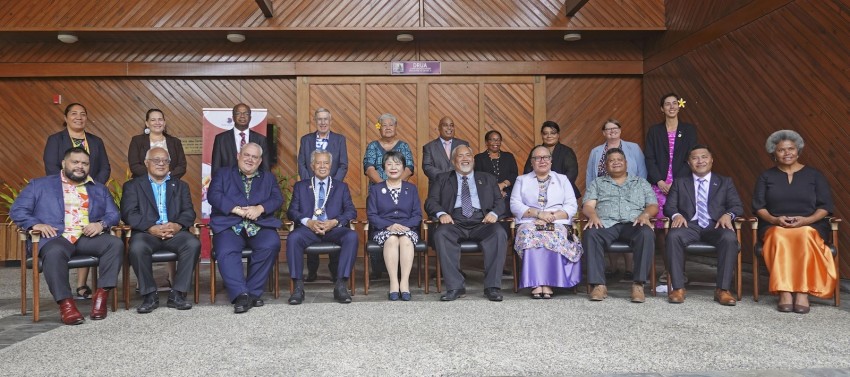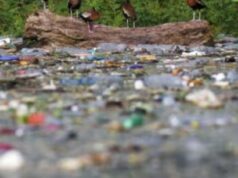Japan, Pacific islands oppose change of status quo by force

Japan and Pacific island nations on Monday expressed their strong opposition to any unilateral attempt to change the status quo by force or coercion during a ministerial meeting held amid China’s growing influence in the region, according to a chair’s summary.
During the meeting in the Fijian capital Suva, Japanese Foreign Minister Yoko Kamikawa told reporters she agreed with her counterparts from the 18-member Pacific Islands Forum on the importance of the “international rules-based order,” while pledging continued support to the strategically important region.
As for Japan’s release of treated radioactive wastewater from the crippled Fukushima Daiichi nuclear power plant into the Pacific, about which some forum members have expressed concern, the ministers concurred on the importance of Japan providing explanations based on “scientific evidence,” according to the summary.
The gathering is intended to lay the groundwork for the 10th Pacific Islands Leaders Meeting scheduled for July in Tokyo. Japan has hosted the summit with the Pacific island nations and territories every three years since 1997.
The ministers vowed to continue close consultation in preparation for a successful gathering, the summary said.
“Toward the summit, we will work together on challenges, especially in climate change and maritime issues, to meet Pacific nations and territories’ needs,” Kamikawa said.
The Japanese government considers its partnership with the region important as it seeks to maintain a free and open Indo-Pacific amid an increase in China’s maritime assertiveness and economic clout. Tokyo assists the tiny nations and territories in areas ranging from economic development to climate change and natural disaster resilience.
In the latest sign of Beijing’s growing reach into the Pacific, where the United States is also vying for influence, Nauru last month severed ties with Taiwan in favor of mainland China, saying it no longer recognizes the self-ruled democratic island as “a separate country” but rather as “an inalienable part of China’s territory.”
Similar actions to switch diplomatic recognition to China from Taiwan were taken in 2019 by Kiribati and the Solomon Islands, which in 2022 signed a security agreement with Beijing.
China, which regards Taiwan as a renegade province, does not hide its ambition to unify it with the mainland, by force if necessary.
Beijing has also been militarizing outposts in disputed areas of the South China Sea and making repeated incursions into territorial waters around the Senkaku Islands, a group of East China Sea islets controlled by Tokyo but claimed by Beijing.
Without referring to a specific case, the summary said the ministers “opposed any war of aggression” and that they expressed “strong opposition to any unilateral attempts to change the status quo by force or coercion anywhere in the world.”
In an apparent effort to address potential concerns among some Pacific islands nations over the discharge of water from the Fukushima plant, Kamikawa explained her government’s position that the discharge has been carried out “in accordance with relevant international safety standards and practices,” and committed to continue working closely with the International Atomic Energy Agency.
Japan has been mindful of sensitivity about the releases, which Beijing has fiercely opposed since before their start in August last year.
Among the other topics at the Monday gathering, the ministers expressed their “grave concern” over what they call the surge in North Korean launches using ballistic missile technology and called on Pyongyang to accept “repeated offers of dialogue,” including from Japan, the United States and South Korea.
They also stressed the importance of an early reform of the U.N. Security Council, including expanding permanent and nonpermanent categories of its membership, the summary said, touching on an issue that Japan has been pursuing.
The PIF consists of Australia, the Cook Islands, Micronesia, Fiji, Kiribati, the Marshall Islands, Nauru, New Zealand, Niue, Palau, Papua New Guinea, Samoa, the Solomon Islands, Tonga, Tuvalu, Vanuatu, and France’s overseas territories of New Caledonia and French Polynesia.
Tuvalu was absent from the ministerial talks in Suva, since recent stormy weather has delayed the forming of the nation’s new government after a general election last month, in which Prime Minister Kausea Natano lost his seat.



